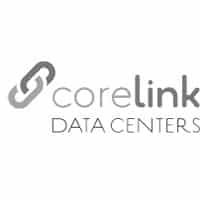A data center operation is a lean operation that is designed to use both computer storage and input power as efficiently as possible. Because the technology is straightforward, and many customers have alternatives between several competing data centers, the cost of services is often the key deciding factor in obtaining new clients. Other performance parameters include access speed, data storage capacity, and the ability to scale operations to match time-varying demand. However, one of the most important aspects of a data center is reliability. Customers do not want to have their data server connections fail at the whims of a power blackout or any other problem. Customers who do not originally choose a data center with high reliability often reconsider after they discover the problems associated with lack of performance. This is the time when both data center clients and data center managers truly learn the importance of data center maintenance and service.
Data center clients do not generally understand the technical details of a data center but they do know one thing: they want it to be properly functioning at all times. The wise clients are monitoring the center’s monthly performance and quality reports and watching for anomalies. They want to get the sense that they have contracted a rock-solid system.
For a data center with a solid design, maintenance should be straightforward and manageable. However, a data center manager should not be lulled into the idea that he can skimp on the credentials when choosing his site maintenance technician. Just the opposite, this man safeguards the reliability of the system, and will quickly become the unsung hero that fixes problems quickly and efficiently, and most importantly, transparently to the customer.
An effective data center maintenance technician will wear several hats. First he should have extensive IT experience. He should understand the quality standards necessary for his data center and perform accordingly. For instance, he should know whether his data center is more of a cost-savings or a reliability setup. He applies this for instance to a malfunctioning computer. It the data center is cost savings, then he starts the repair by performing analysis, and isolating the problem. On the other hand, if the data center is designed for reliability then he will waste no time trying to fix the bad server, but he will rather simply pull it out for a new one. An even more efficient data center will have a data redundancy configuration, where two servers perform the same work, allowing one to take over for the other in case of a problem. This allows all faulty servers to be repaired offline, with no interruptions to the server operation.
An effective data center maintenance technician will have power distribution experience and understand the loading plan for his center. He should be able to monitor the power distribution at all points and ensure proper operation. Many data centers minimize costs by reducing power consumption to the bare minimum. They also do this to get a green rating. The knowledgeable technician should understand each of these systems.
A reliable data center maintenance technician will also have sufficient HVAC (heat, ventilation, and air conditioning experience). The closely-spaced, heat-generating servers must be properly vented to maintain temperature within their operating range. This protects the units as well as optimizes the quality of the data streams. The proper data center maintenance technician is the one who will keep all of these systems running smoothly.



























